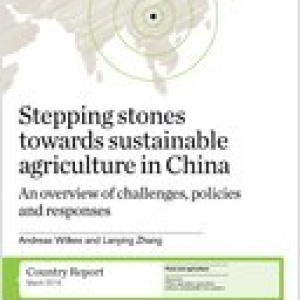
This report written by Andreas Wilkes and Lanying Zhang for the International Institute for Environment and development (IIED) provides an overview of issues in sustainable agriculture in China, the country’s evolution to a modern, high-external input agriculture and the sustainability implications of this development. The report also looks into issues such as land tenure reforms and roles of cooperatives.
Abstract
In only a few decades, agriculture in China has evolved from a diverse “agriculture without waste” to one involving specialised, high-external input, resource-intensive, commercially-oriented models.
This report charts this evolution, with a focus on sustainability – economic, environmental and social. It asks how China’s modern development is affecting sustainability in farming and the rural environment, and looks in detail at the influence of policies and measures to transform agricultural production systems in more sustainable ways.
The report concludes by considering some of the challenges and opportunities that could shape sustainable agriculture in China in the future.
Citation
Wilkes, A., Zhang, L., 2016, Stepping stones towards sustainable agriculture in China, IIED
Read the full report here. For another similar analysis (written by Tara Garnett and Andreas Wilkes) see FCRN’s major report on changes in China’s agriculture in Appetite for Change: social, economic and environmental transformations in China’s food system from 2014.
You can find other similar resources in our research library here.







Post a new comment »